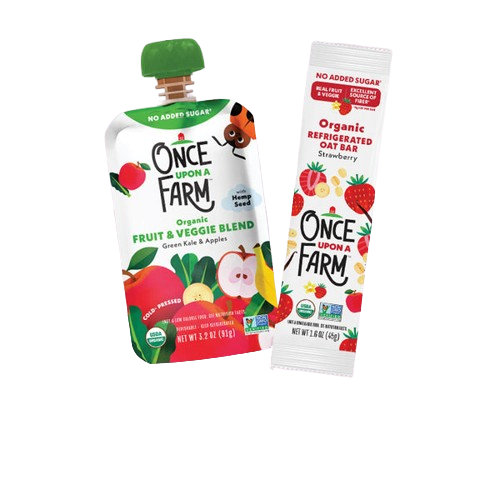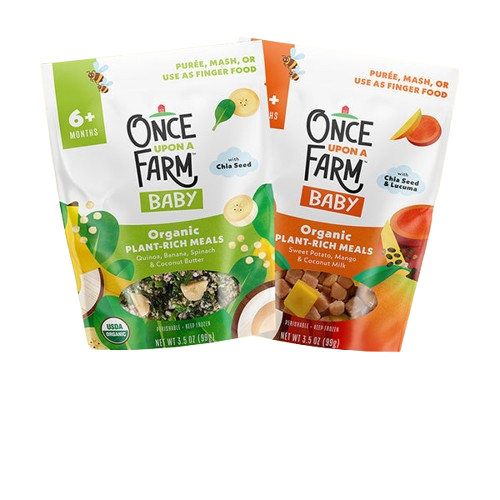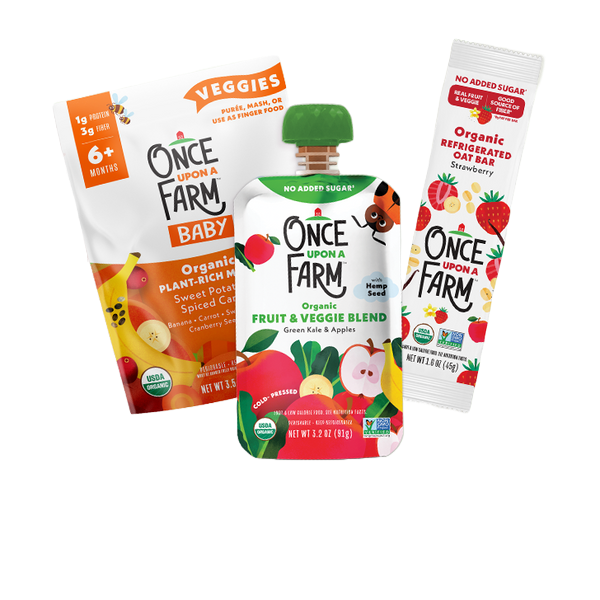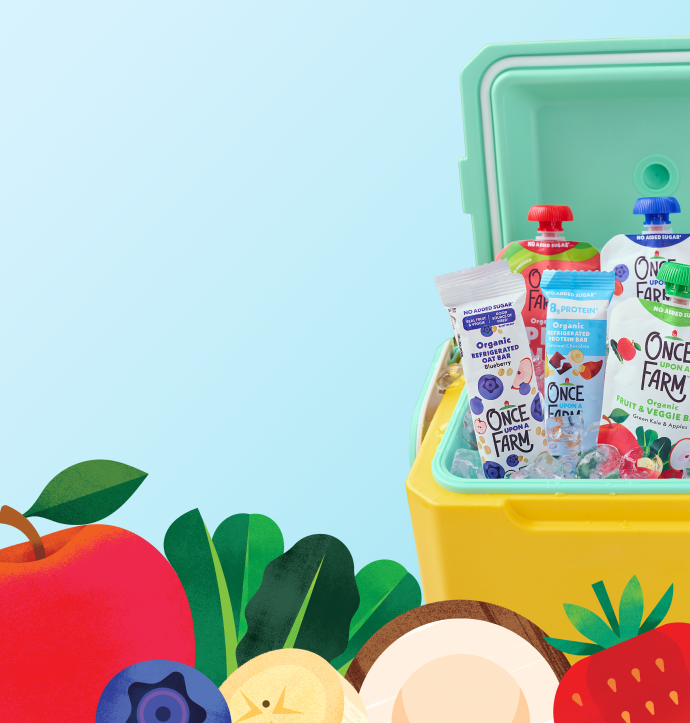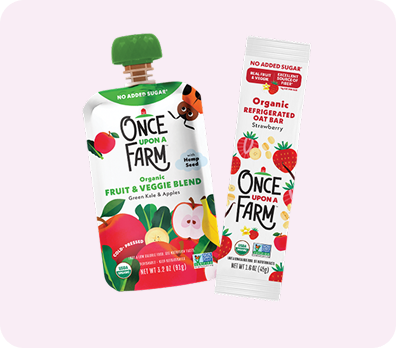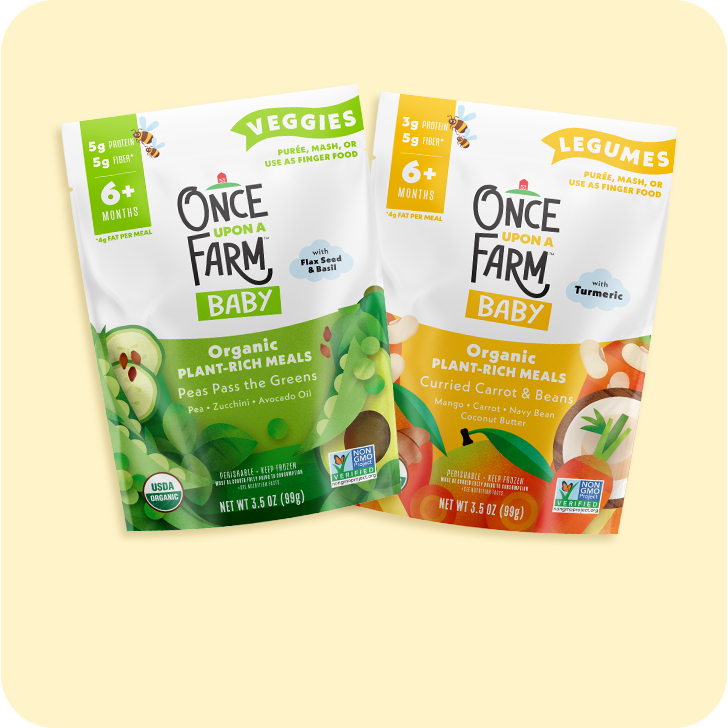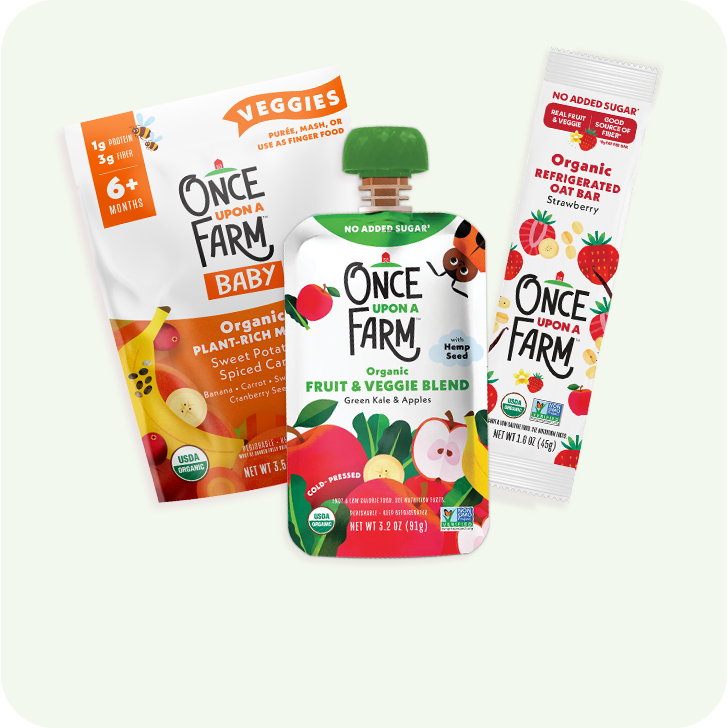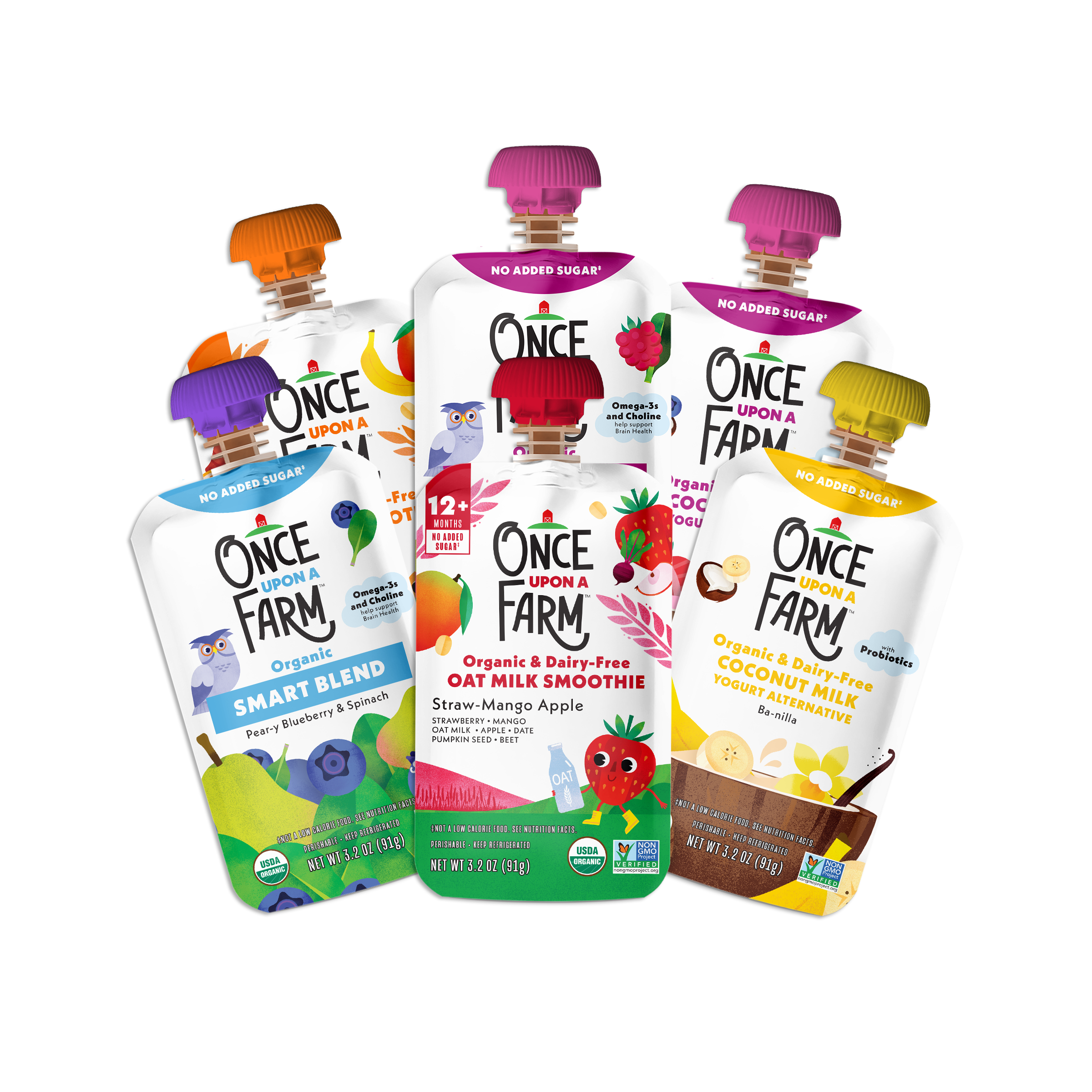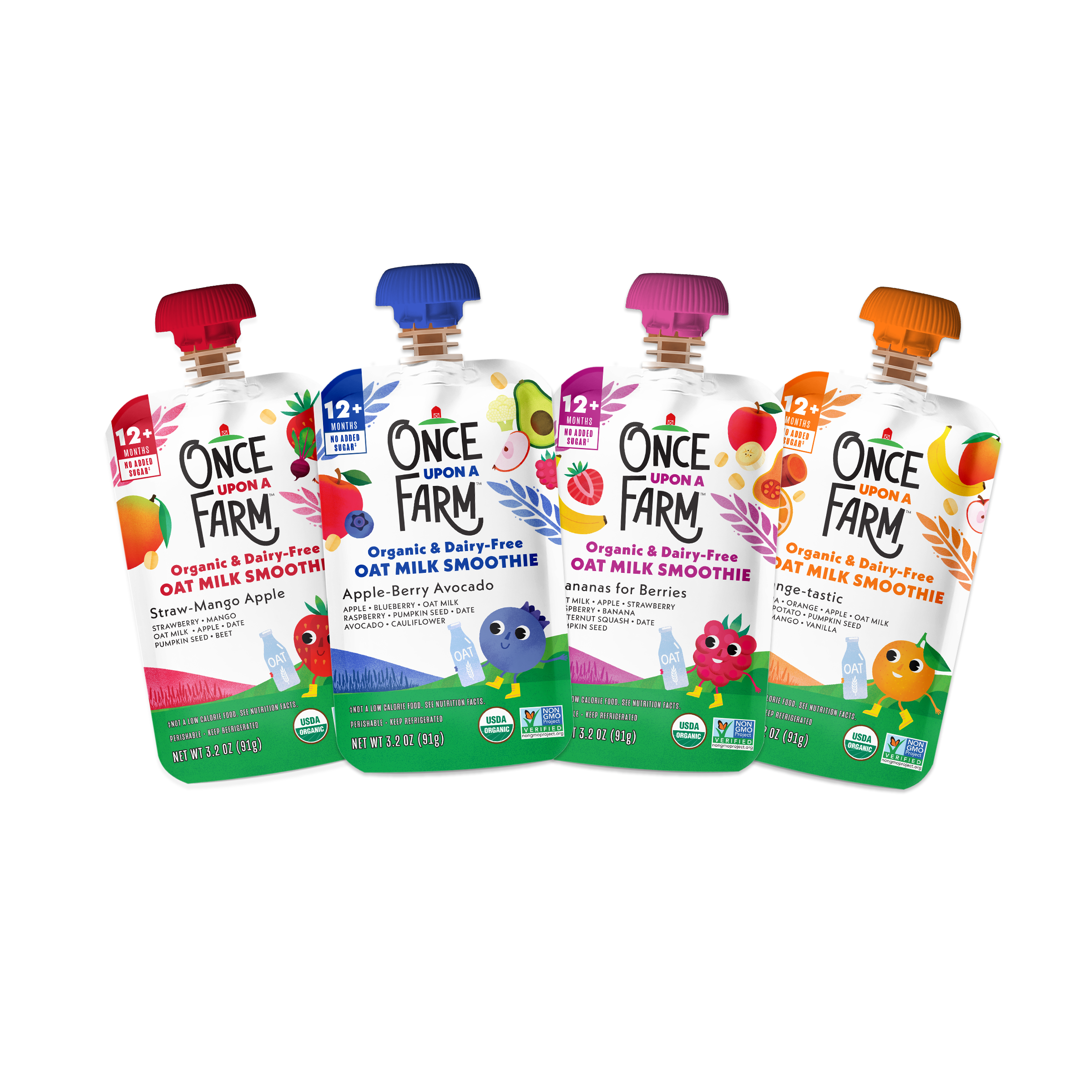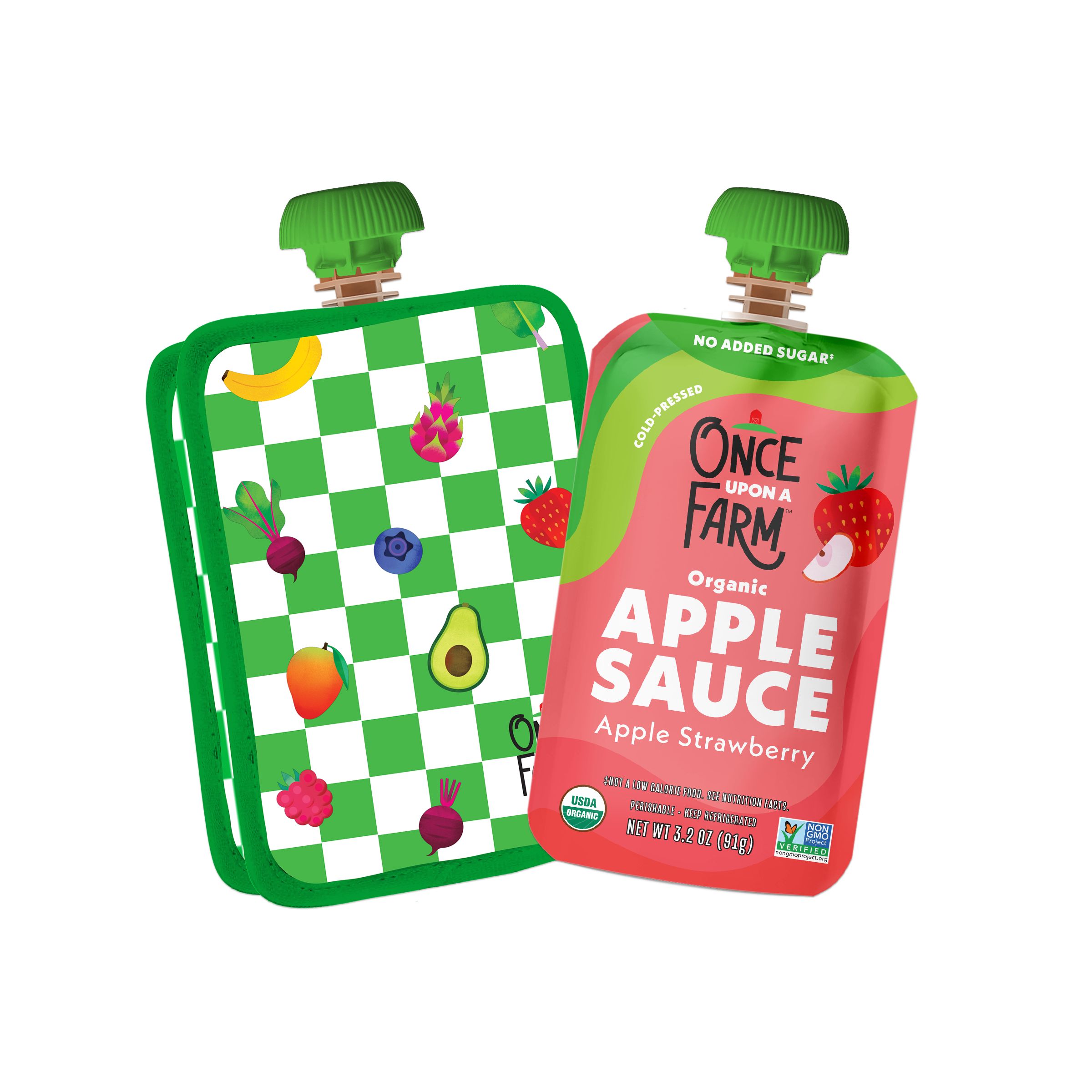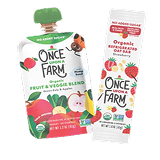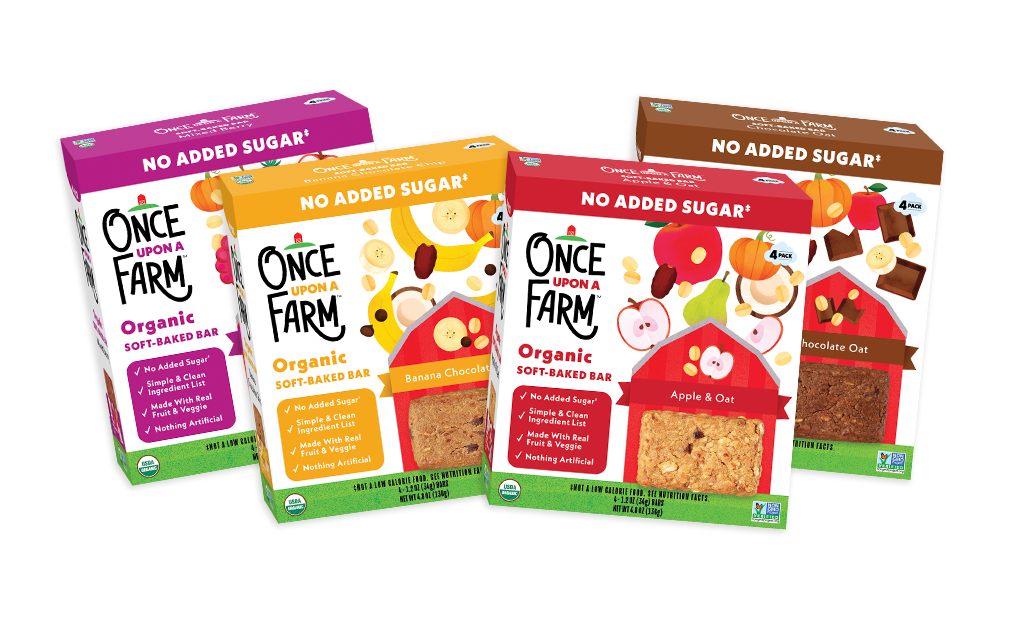As babies begin to eat solid foods, it’s only natural for parents to wonder, will my baby get bored of eating the same purées over and over? When is the right time to start mixing up flavors and textures? We tapped O’Farm expert, Nicole Lattanzio, RD, CSP, IBCLC to tackle these common questions.
As babies start on solid foods, do they get bored with eating the same foods over and over? If so, around what age or stage does this boredom tend to kick in?
Nicole Lattanzio: Babies can, in fact, become bored over time eating the same foods. With that being said, it varies a ton among babies! Some are cool with simplicity and having the same food often, others prefer more variety and may choose not to eat a certain food if they’re tired of it. It’s tough to give a specific age or stage on when this may happen, but in my practice I notice it most around 8-9 months old — especially if foods have been served the same way over and over.
What are some signs that a baby is ready for more variety in their solid foods? How can parents know when it's time to start introducing new flavors and textures?
NL: I’m a huge proponent of offering variety early on. The more food diversity, the more exposure a baby gets to various nutrients, flavors, and textures. Once Upon a Farm’s Organic Plant-Rich Meals are an incredible option. For those feeling more cautious with advancing foods, once a baby is tolerating a few foods and doing well with a purée texture, begin to offer more foods each week and try new textures (lumpy, bumpy, thicker, etc).
How often should parents aim to introduce new foods in those first months of solid feeding? Is there such a thing as too much variety too soon?
NL: There’s a lot of debate on how quickly to advance foods. If a baby is at high risk of allergies or has shown signs of intolerance to certain foods, discuss advancement with your pediatrician and/or pediatric allergist. For the majority of babies, however, multiple new foods can be offered at one time. These foods should be “low risk foods,” such as fruits, vegetables, and proteins.
If offering top allergens (i.e. egg, peanut butter, dairy, etc.), these should be given individually. I advise my clients to have a goal of offering around 3 new foods per week. Some exceed this easily, while others may be around 2-3 per week with planning. There isn’t harm in offering a lot of variety to babies, but it can cause unnecessary stress for new families. Setting realistic expectations for themselves around feeding is so important!
What are some common mistakes parents make when introducing solids and transitioning to more variety? How can these mistakes be avoided?
NL: The most common mistake I see is parents waiting too long to advance textures and offer more food groups. Purées of just fruits and veggies are meant to be a temporary stage! Once the baby is tolerating these (usually a couple weeks), it’s time to step it up. This may look like offering blends that include fats, protein, and textures that are thicker or lumpy — or beginning to offer some finger foods.
Any tips for making mealtimes fun and exposing babies to new flavors/textures without overwhelming them (or yourself)?
NL: Variety doesn’t need to be stressful or lots of work! Variety can be as simple as the way you serve a food. For example, serving purée from a Once Upon a Farm pouch versus in a bowl. You can also start small by adding to the foods you have. I teach my clients to amp up purées by adding a sprinkle of chia seed or hemp seed. This adds a new texture along with loads of nutrition!
Incorporating herbs and spices that are used often in the household can introduce babies to family flavors, as well. Not only this, but serve family foods early on when possible! Many foods can be made appropriate for babies with simple modifications (i.e. cooking a bit longer until tender, chopping, etc).
The bottom line? Pay attention to your baby’s cues, and feel confident that their taste buds are expanding exactly as they should! At Once Upon a Farm, we’re on a mission to make it easier than ever for parents to feed their little ones with complete peace of mind.

